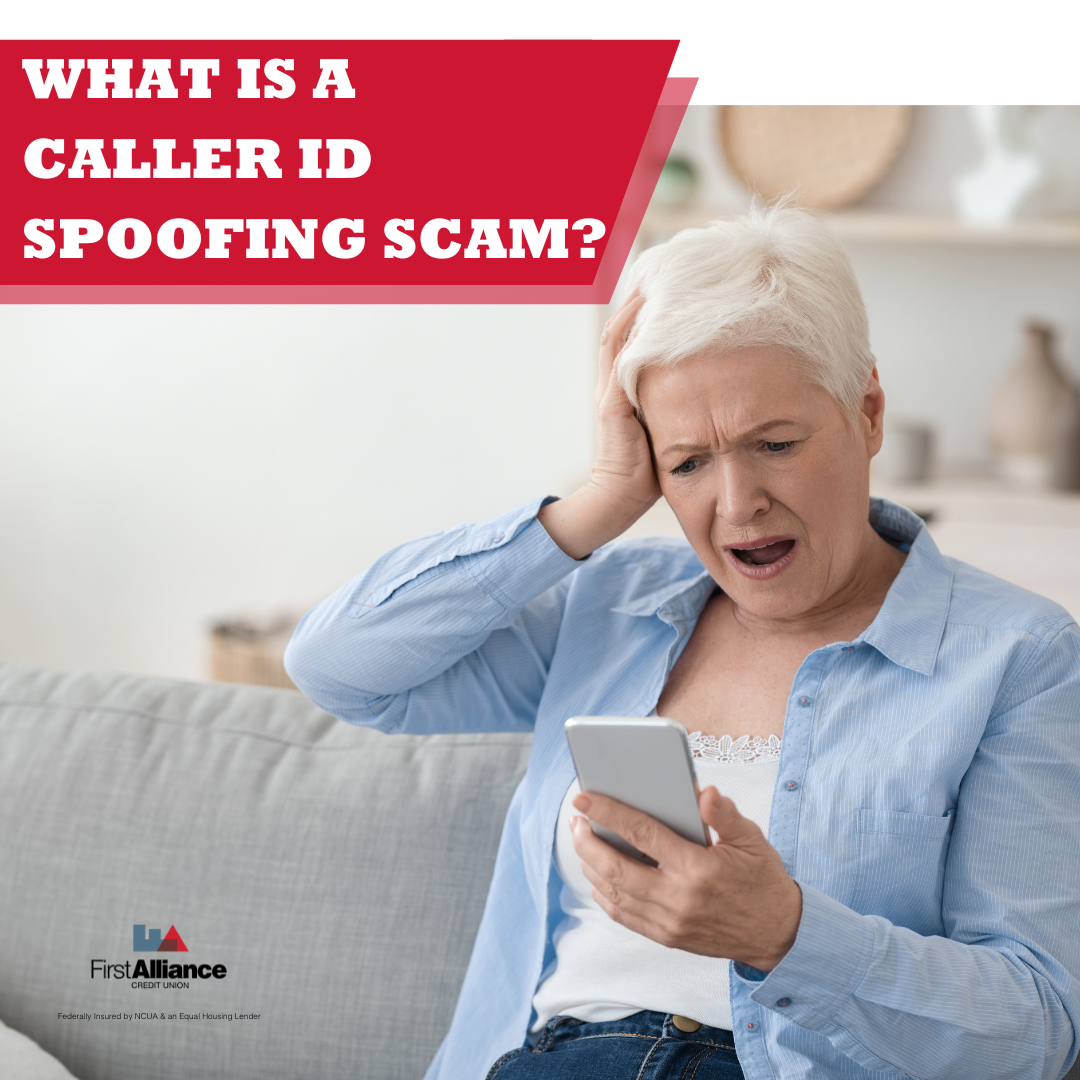Tips for Preventing Gift Card Scams
With the holidays quickly approaching, gift card sales are increasing and unfortunately, so are gift card scams. If you're thinking of purchasing...

Caller ID technology has been around for many years. It's when your phone screen displays the number of the person calling you to help you identify between the people you know and trust, and those who are just trying to sell you something. Which is exactly why scammers have started mimicking the numbers you trust through a fraudulent tactic called spoofing.
Spoofing is when a scammer deliberately falsifies the information transmitted to your caller ID display to disguise their identity. Scammers often use neighbor spoofing so it appears that an incoming call is coming from a local number, or spoof a number from a company or a government agency that you may already know and trust, such as the credit union.
They do this to trick you into answering their phone call. If you answer, they will use common scam tactics to try to steal your money and valuable personal information, which can be used in fraudulent activity.

You will not likely be able to tell right away if an incoming call is being spoofed by a scammer. Here are a few tips to help you avoid becoming a victim of a scam and losing your money:
Never provide or confirm personal or financial information during any call that you didn't initiate.
Never respond to "yes or no" questions or push any phone buttons if prompted to opt-out of future calls. Scammers use these tactics to identify live phone lines, and the number of calls to your line may increase as a result.
Even if you think your card issuer or financial institution is calling, or texting, about suspected fraud activity associated with your account, do not respond. Simply call the number on the back of the credit card or the main phone number for the bank or credit union in question to be sure it's really your financial institution trying to reach you.
Don't answer calls from unknown numbers, even if they are local numbers. If you answer such a call, hang up immediately.
If you answer the phone and the caller, or a recording, asks you to hit a button to stop getting the calls, you should just hang up. Scammers often use this trick to identify potential targets.
Never give out personal information such as account numbers, Social Security numbers, mother's maiden names, passwords or other identifying information in response to unexpected calls or if you are at all suspicious.
If you get an inquiry from someone who says they represent a company or a government agency, hang up and call the phone number on your account statement, in the phone book, or on the company's or government agency's website to verify the authenticity of the request.
Hang up the phone if you are being pressured for information or make a payment immediately, most organization will not pressure you for immediate response or commitments.
Talk to your phone company about call blocking tools and check into apps that you can download to your mobile device. The FCC allows phone companies to block robocalls by default based on reasonable analytics. More information about robocall blocking is available at fcc.gov/robocalls.
Let all unknown or unexpected callers go to voicemail. But remember to check your voicemail periodically to make sure you aren't missing important calls. Then clear out any spam calls that might fill your voicemail box to capacity.
Scammers are constantly trying to find new ways to take your hard earned money. The best way you can keep yourself from falling victim is to be educated about scams and fraud. At First Alliance Credit Union we take your financial security very seriously and have put together many additional resources to you to learn from, check out the list below or listen to our Good Money Moves podcast.
If you think you've been the victim of a spoofing scam, you can file a complaint with the FCC immediately. You should also contact your financial institution immediately so they can help you update your information to keep scammers from accessing more of your money.

With the holidays quickly approaching, gift card sales are increasing and unfortunately, so are gift card scams. If you're thinking of purchasing...

These days, scams are more prevalent than ever, and scammers are constantly coming up with new tactics to bilk people out of their money. You’ve...

Without a doubt, using credit cards can make life easier. You can buy anything and everything with just a swipe of your credit card. Buyers and...